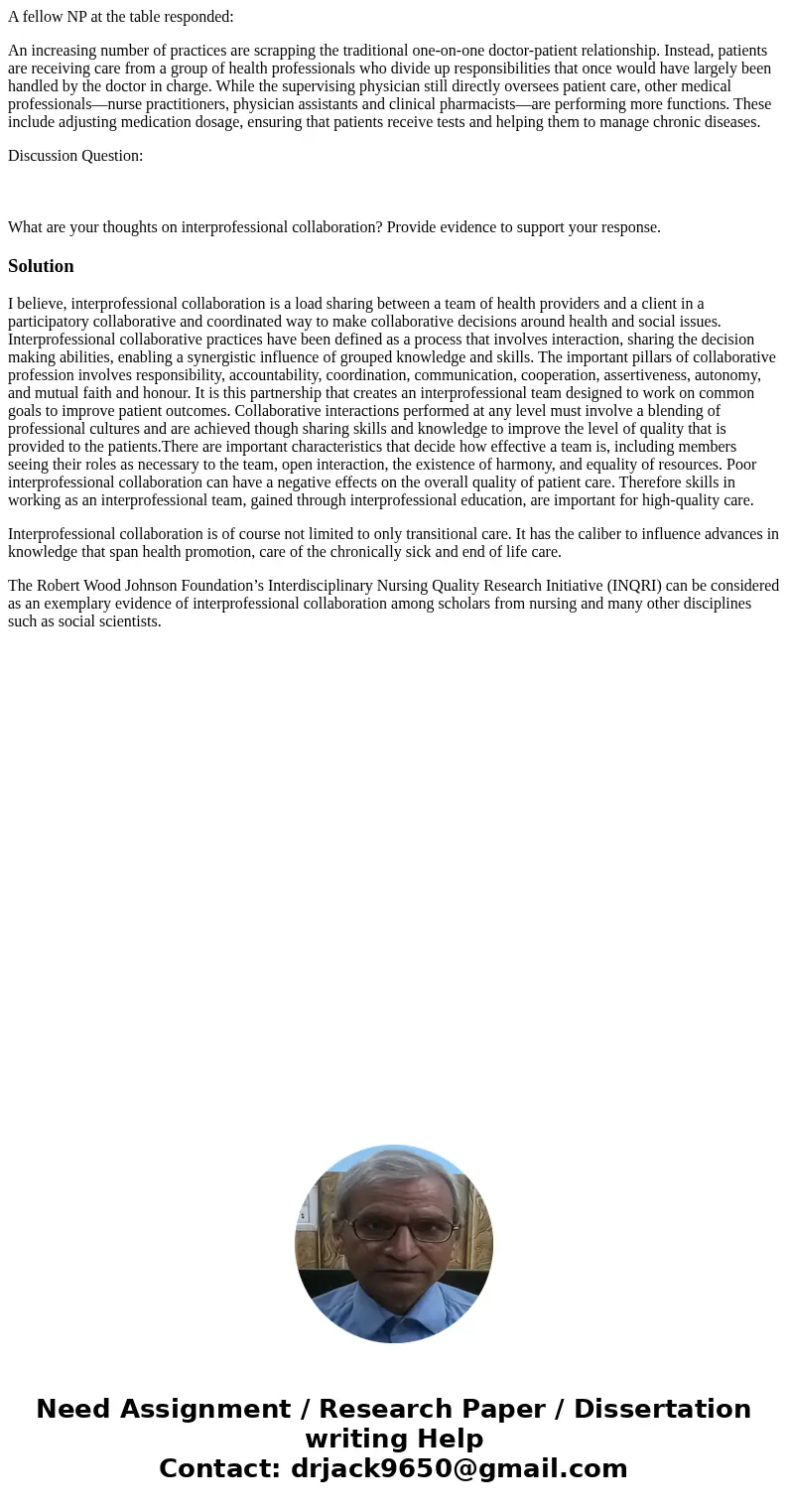A fellow NP at the table responded An increasing number of p
A fellow NP at the table responded:
An increasing number of practices are scrapping the traditional one-on-one doctor-patient relationship. Instead, patients are receiving care from a group of health professionals who divide up responsibilities that once would have largely been handled by the doctor in charge. While the supervising physician still directly oversees patient care, other medical professionals—nurse practitioners, physician assistants and clinical pharmacists—are performing more functions. These include adjusting medication dosage, ensuring that patients receive tests and helping them to manage chronic diseases.
Discussion Question:
What are your thoughts on interprofessional collaboration? Provide evidence to support your response.
Solution
I believe, interprofessional collaboration is a load sharing between a team of health providers and a client in a participatory collaborative and coordinated way to make collaborative decisions around health and social issues. Interprofessional collaborative practices have been defined as a process that involves interaction, sharing the decision making abilities, enabling a synergistic influence of grouped knowledge and skills. The important pillars of collaborative profession involves responsibility, accountability, coordination, communication, cooperation, assertiveness, autonomy, and mutual faith and honour. It is this partnership that creates an interprofessional team designed to work on common goals to improve patient outcomes. Collaborative interactions performed at any level must involve a blending of professional cultures and are achieved though sharing skills and knowledge to improve the level of quality that is provided to the patients.There are important characteristics that decide how effective a team is, including members seeing their roles as necessary to the team, open interaction, the existence of harmony, and equality of resources. Poor interprofessional collaboration can have a negative effects on the overall quality of patient care. Therefore skills in working as an interprofessional team, gained through interprofessional education, are important for high-quality care.
Interprofessional collaboration is of course not limited to only transitional care. It has the caliber to influence advances in knowledge that span health promotion, care of the chronically sick and end of life care.
The Robert Wood Johnson Foundation’s Interdisciplinary Nursing Quality Research Initiative (INQRI) can be considered as an exemplary evidence of interprofessional collaboration among scholars from nursing and many other disciplines such as social scientists.

 Homework Sourse
Homework Sourse